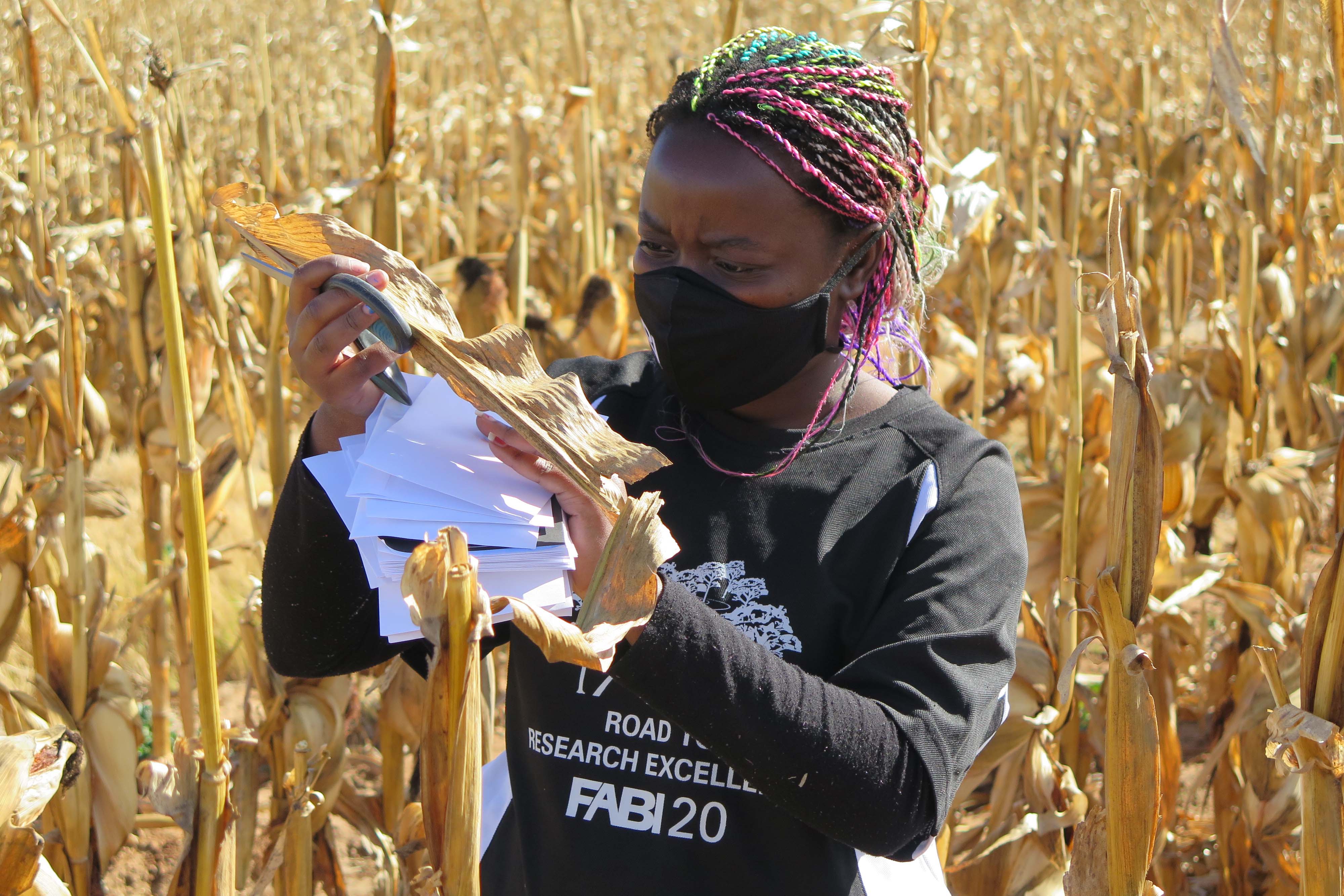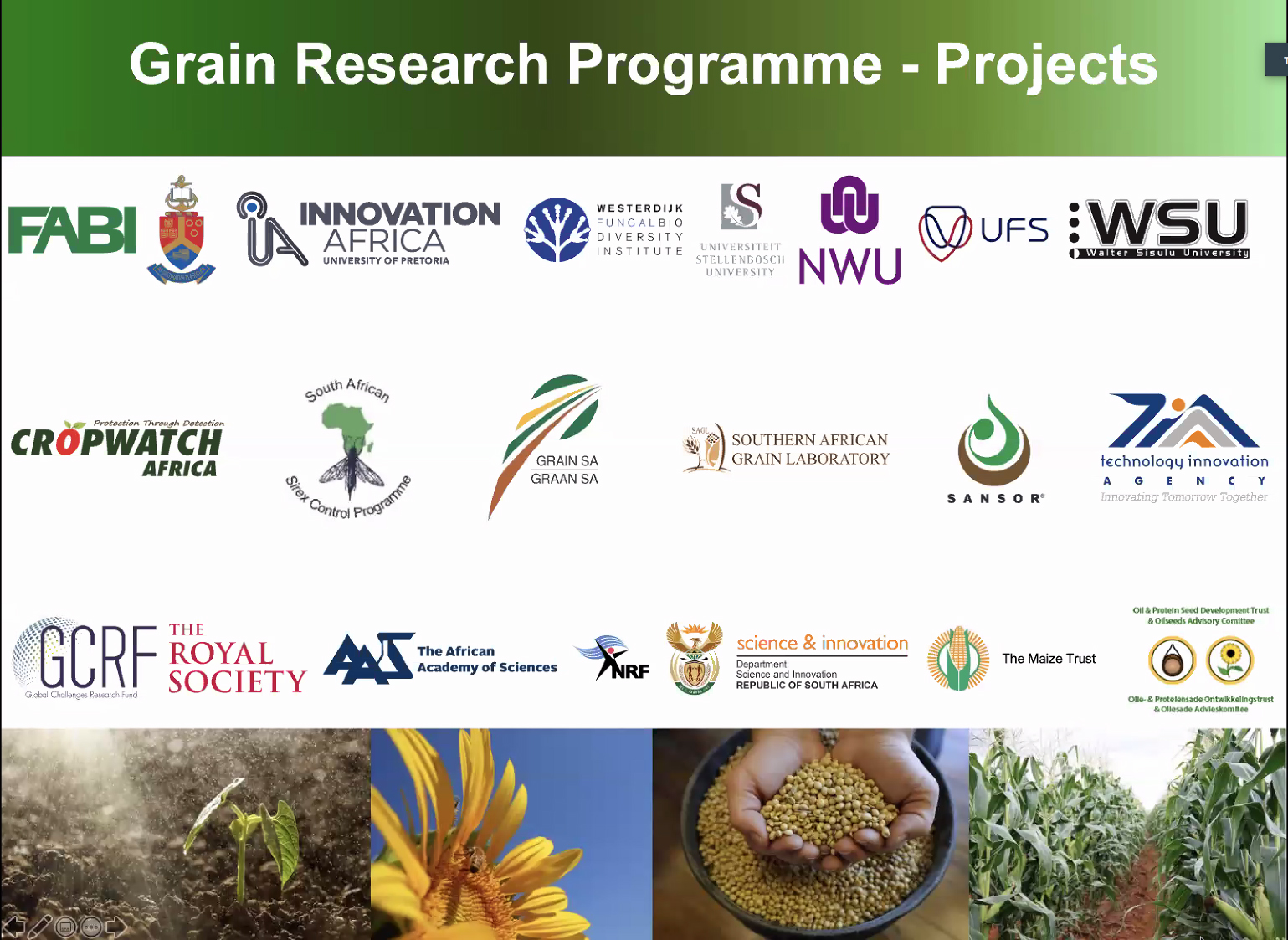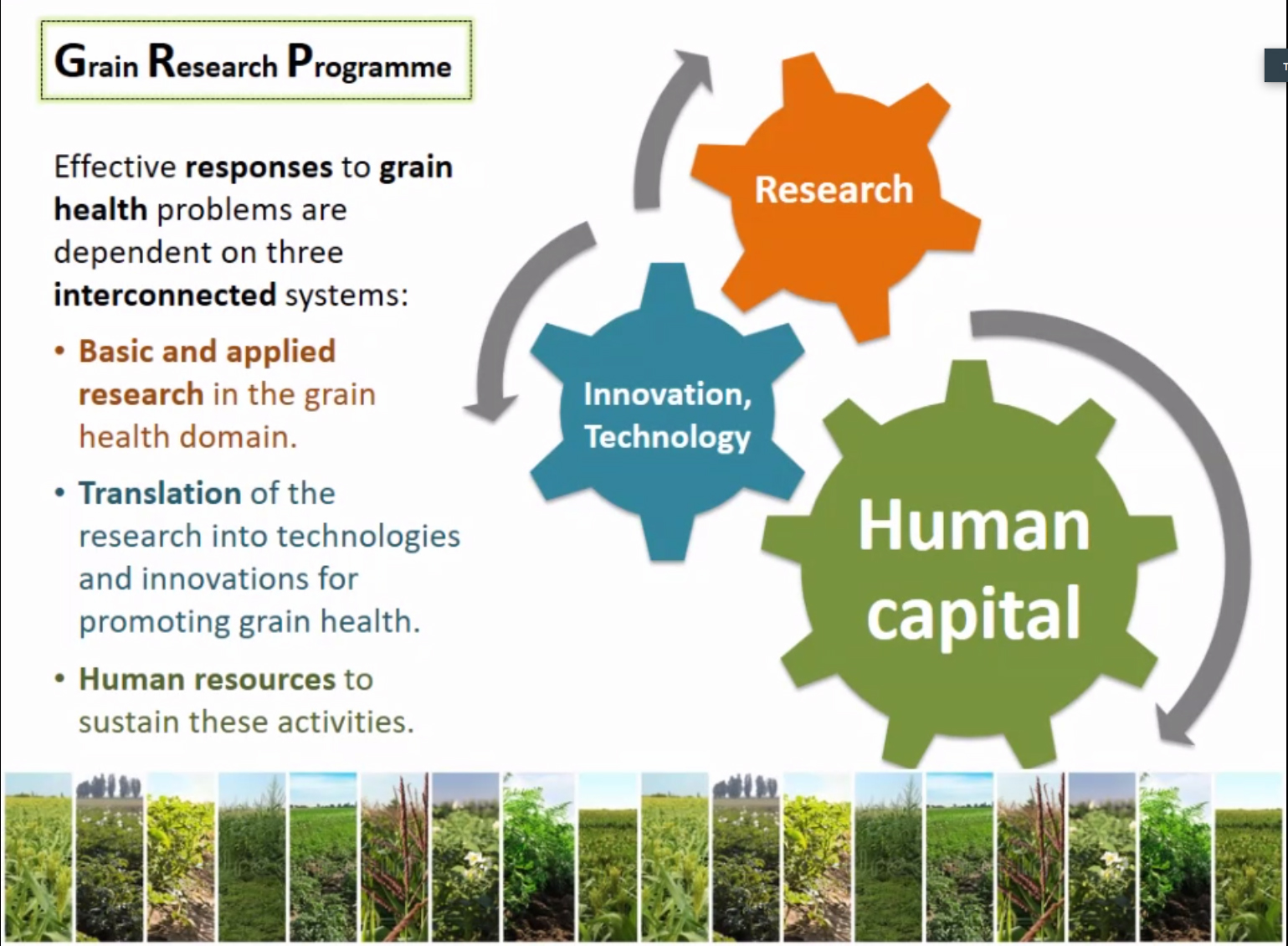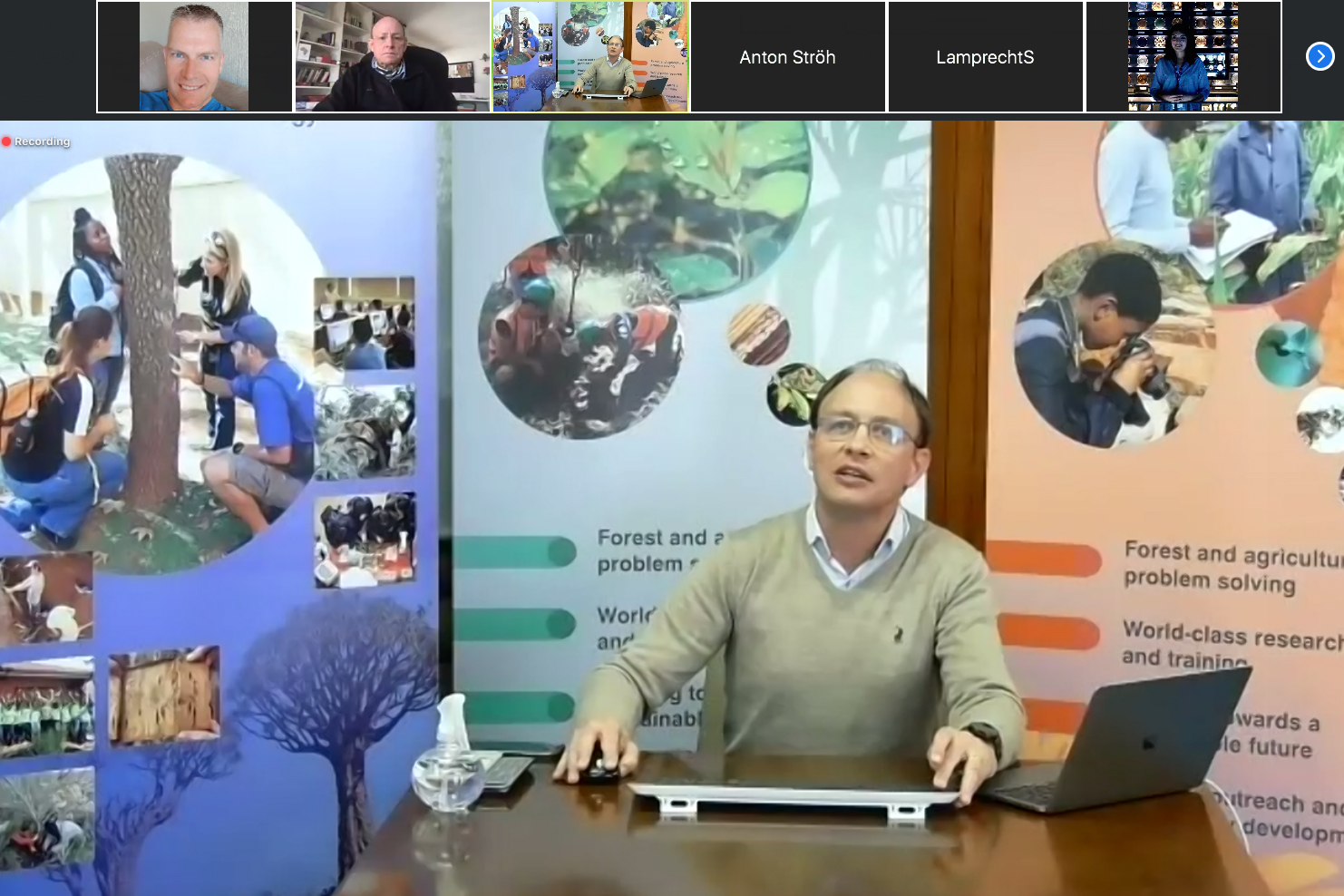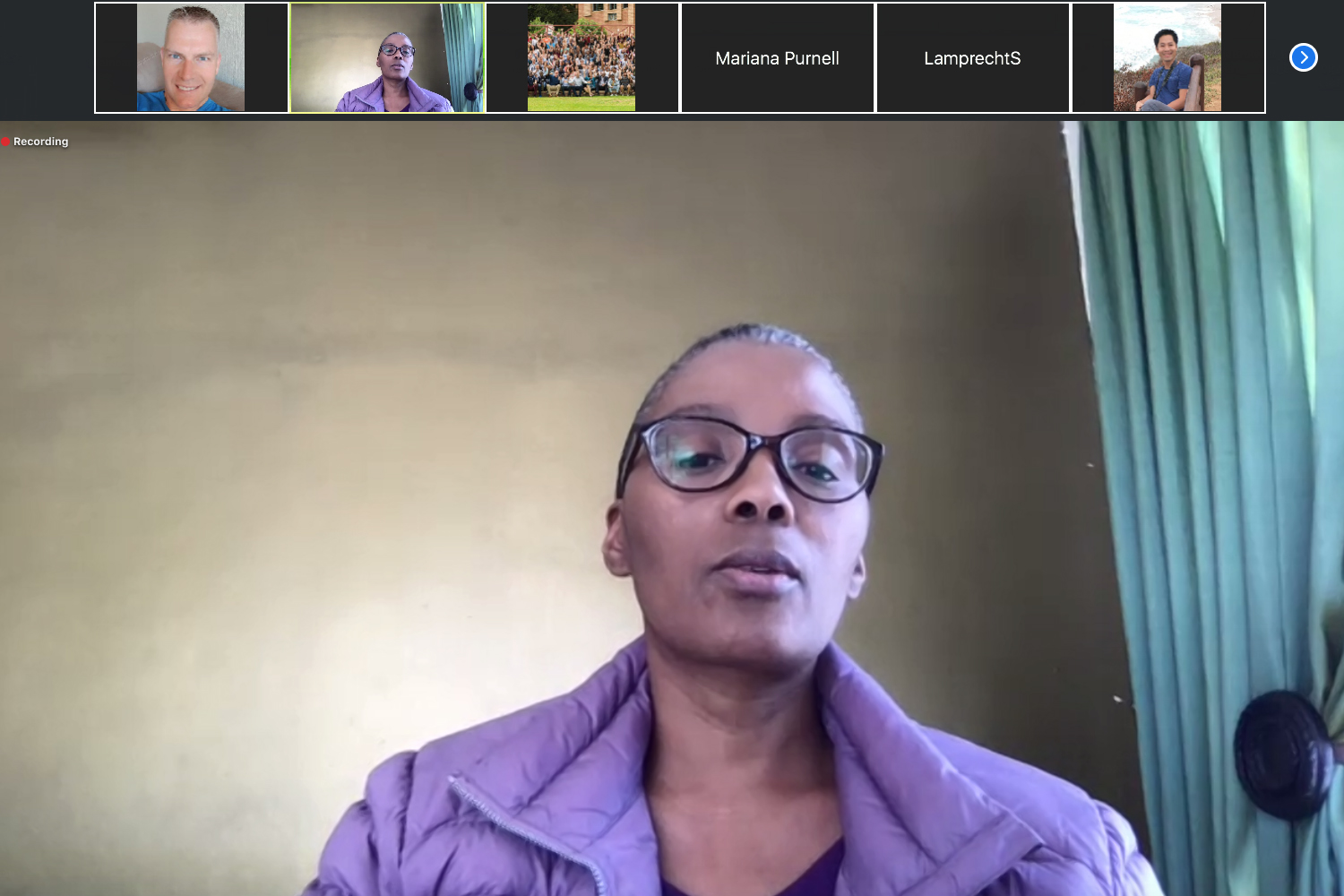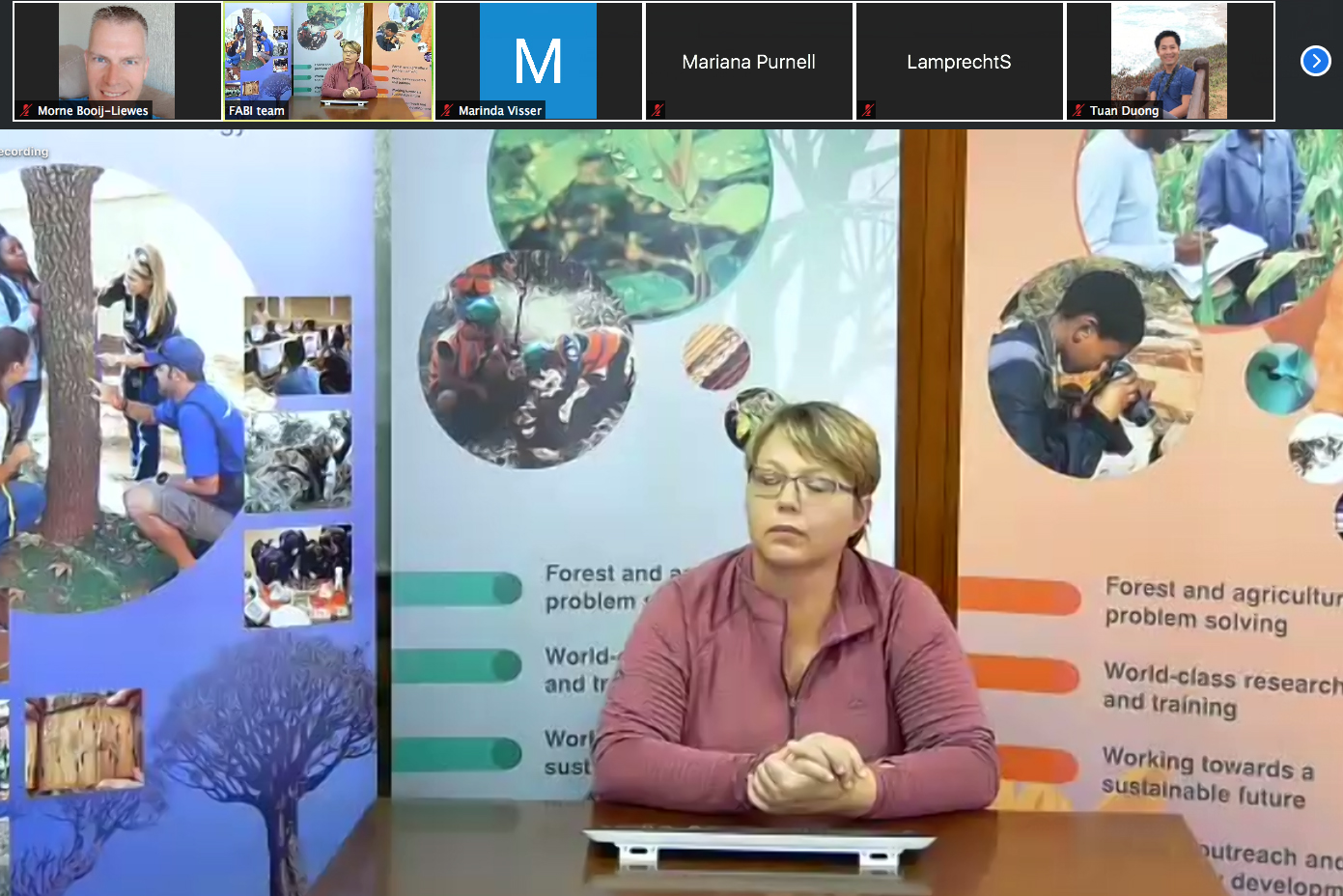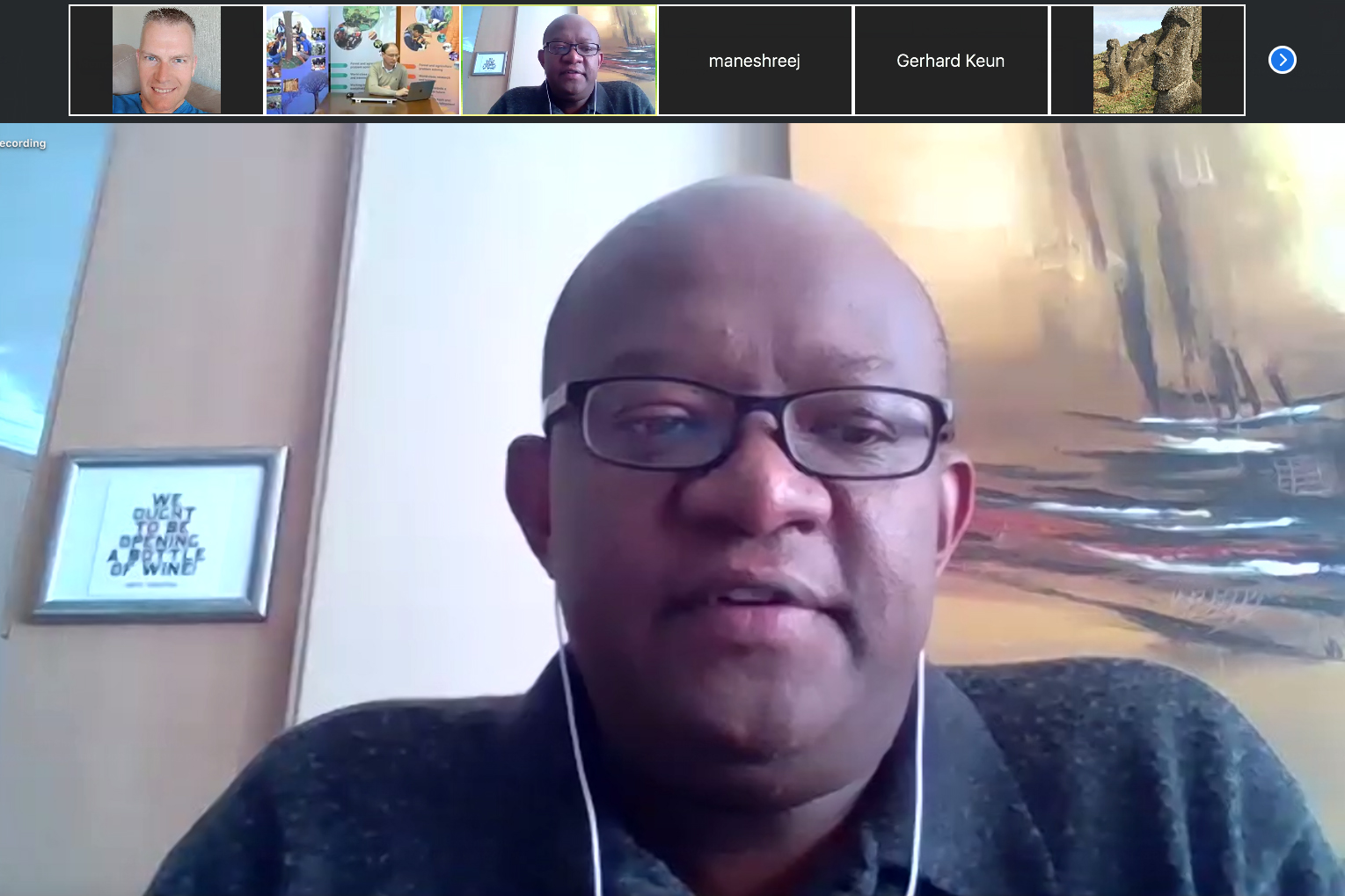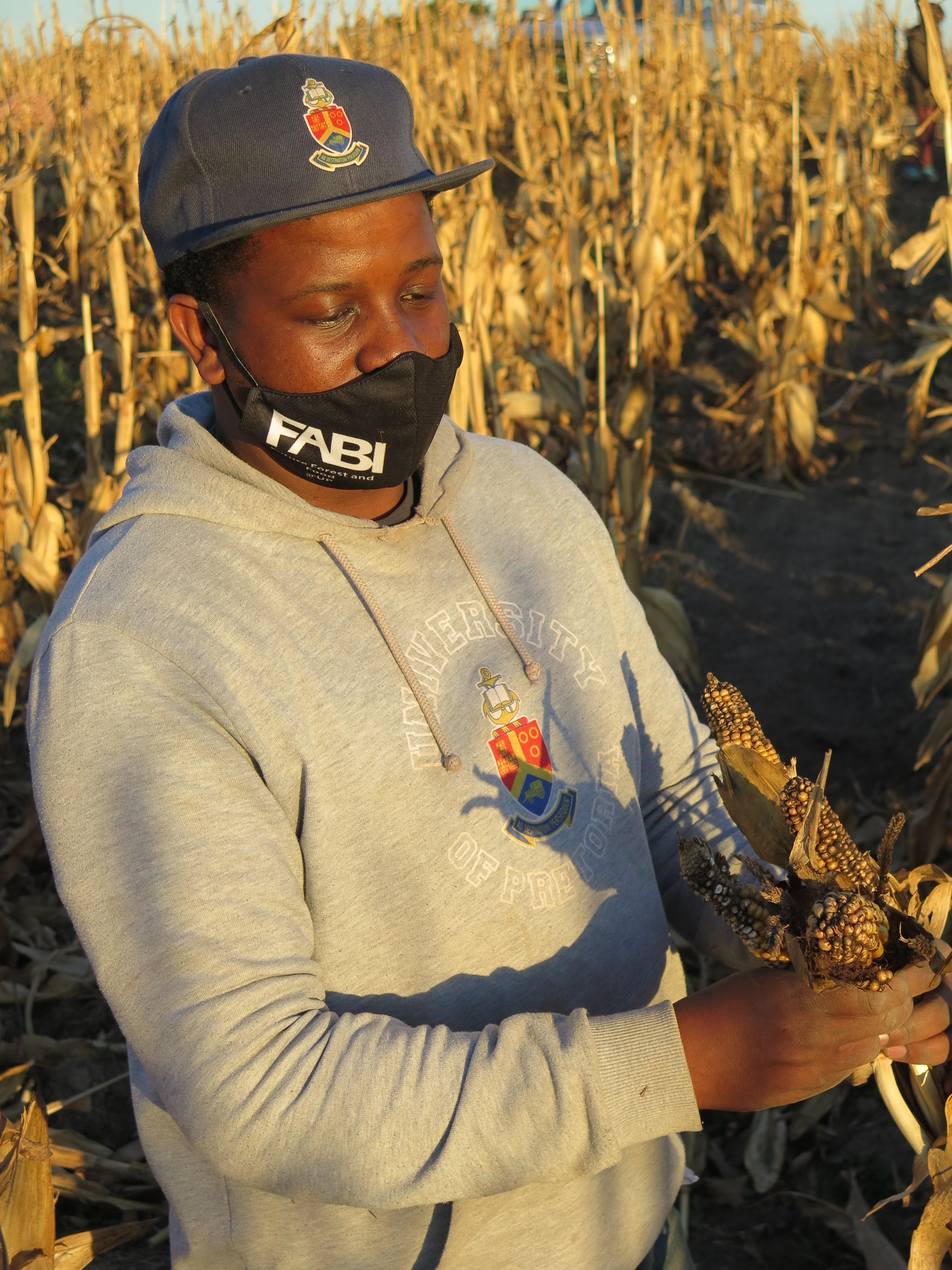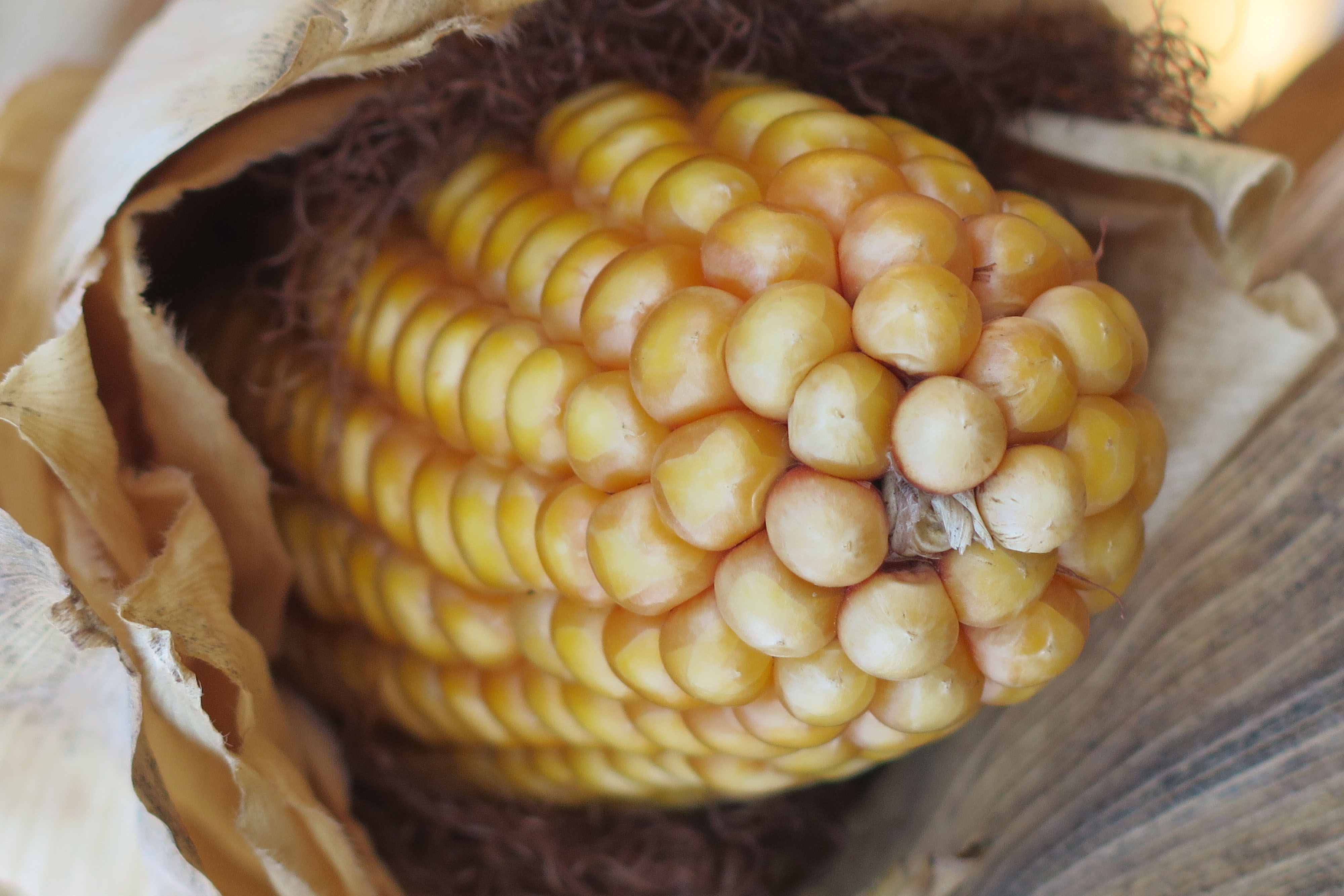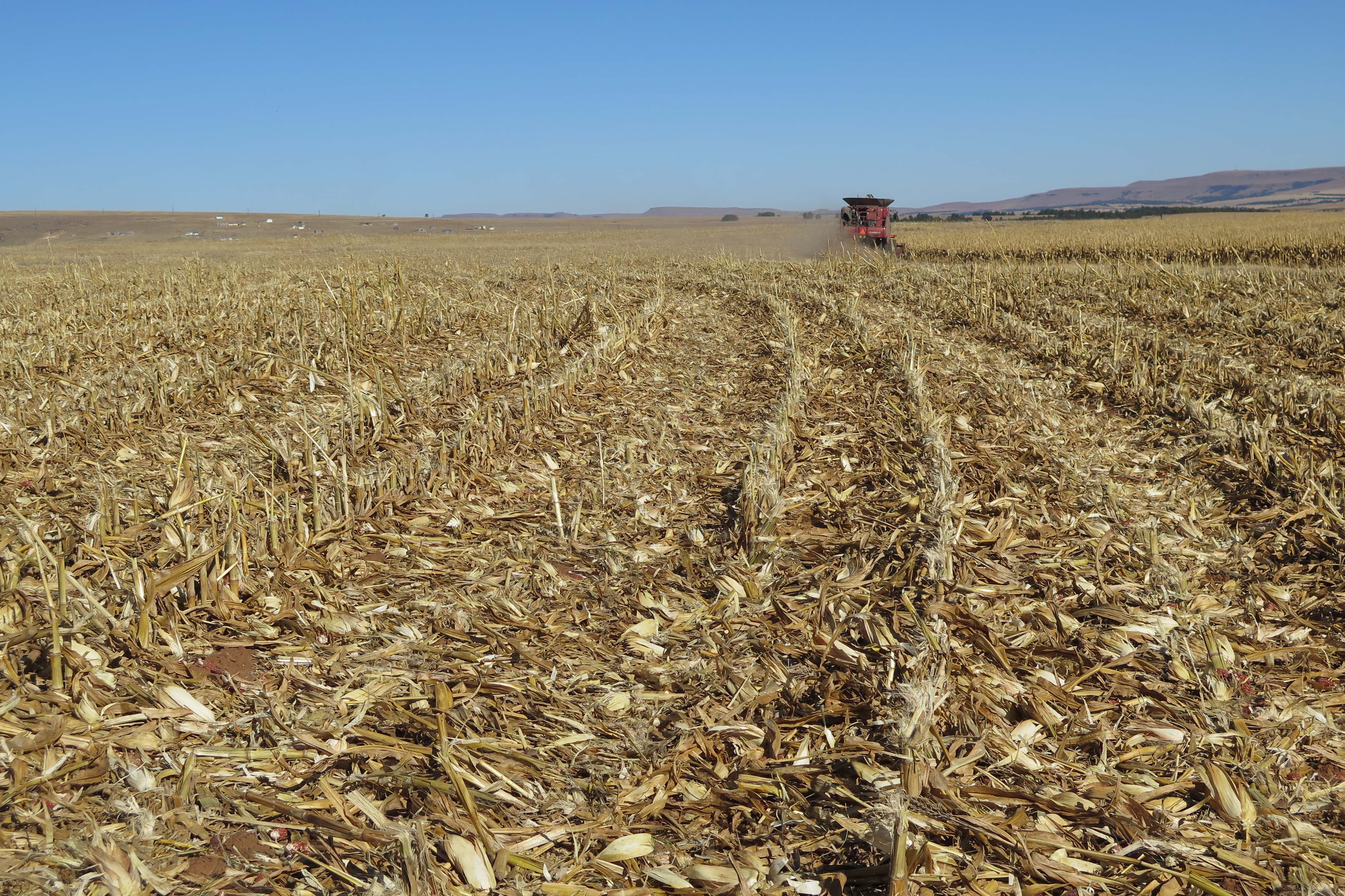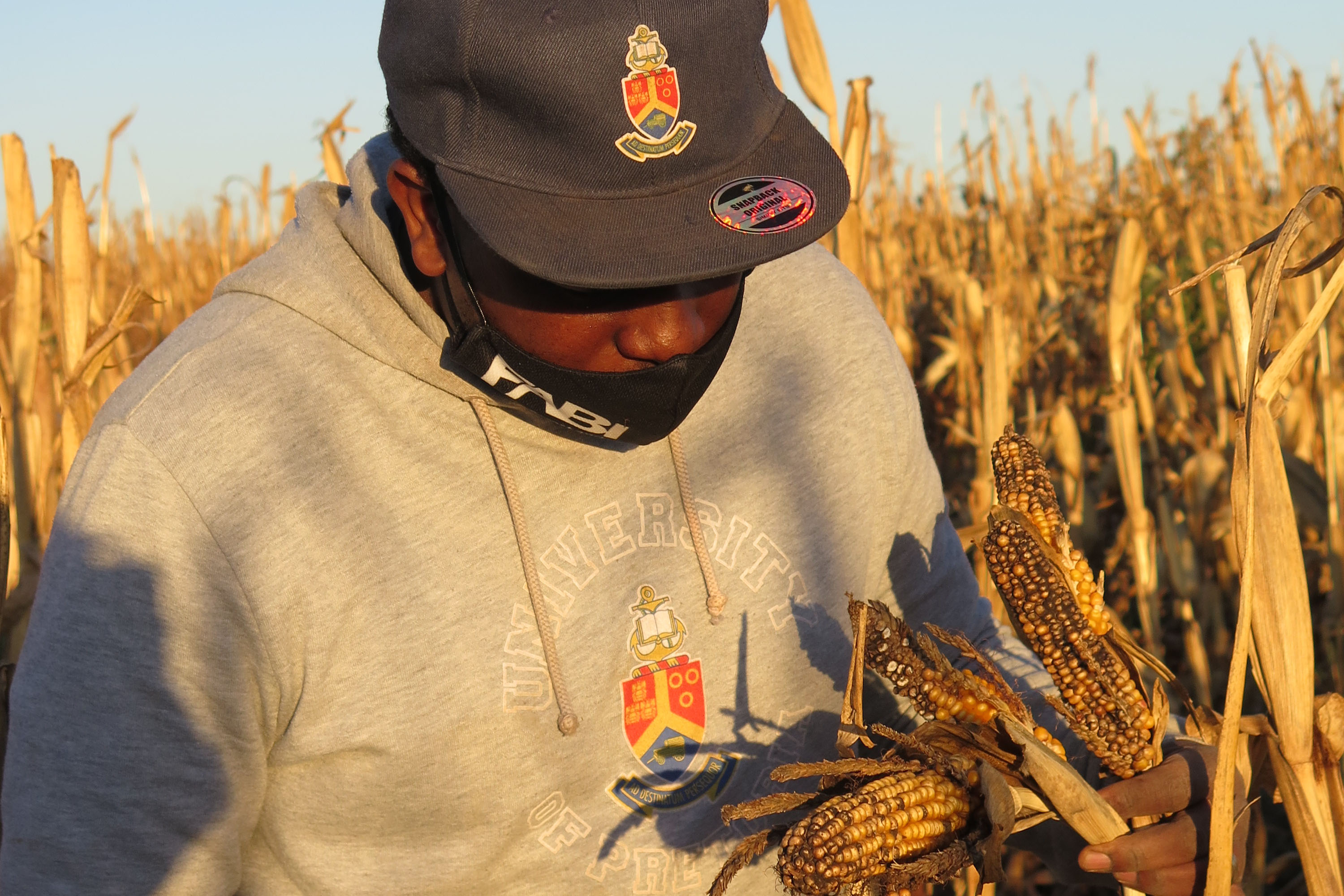FABI launches its multi-disciplinary Grain Research Programme 2020-08-28
FABI launched its multi-disciplinary Grain Research Programme (GRP) during an online event on 21 August. The GRP is the 19th research programme in the Institute and will see the University of Pretoria (UP) partner with industry representative bodies, government ministries and various Universities and research institutes with the aim of supporting the grain industry through scientific research and critical skills development. The online launch was attended by members of industry, research councils, research collaborators, government departments, ministries and members of the UP executive, Grain SA, SANSOR, Oil & Protein Seeds Development Trust and Cropwatch Africa. The speakers all agreed that cooperation between universities, industry and government was imperative to ensure food security and skills development in South Africa and the region.
FABI Director Prof. Bernard Slippers said the launch of the GRP was “a celebration of the progress in developing the programme over the past two years, and an indication that we are ready to take the next step”. The initiative started in July 2018 with the signing of Memoranda of Understanding between the University of Pretoria, Grain SA and the South African National Seed Organisation (SANSOR). “FABI was founded based on the interaction with stakeholders and has a deeply-rooted culture of stakeholder engagement. We celebrate the next step today in incubating another such an industry-government-University programme,” he explained. He also pointed out that this programme will complement and not replace any existing organisations or structures.
Vice-Principal: Institutional Planning, Monitoring and Evaluationat the University of Pretoria, Prof. Anton Ströh expressed his excitement at the new programme. “This ensures that UP can contribute meaningfully to achieving the Sustainable Development Goals while also gathering many Universities around the same table. No single University can fulfil this important task, but in partnership we can succeed,” he explained. He pointed out that UP had already invested heavily in the development of its experimental farm. The first step was the Future Africa Campus connecting African and global research networks. Engineering 4 will lead the development of future smart infrastructure while FABI will anchor Innovation Africa@UP. Dean of the Natural and Agricultural Sciences at UP, Prof. Barend Erasmus also praised the GRP launch saying that “FABI has both the processes and expertise in place to ensure the success of the programme”.
Dr Marinda Visser, Director: Strategy and Partnerships - Innovation Africa@UP explained that the GRP was the outcome of a journey that started eight years ago as an initiative to strengthen the relationship between the grain industry, government and researchers. Dr Visser had managed the Grain Research and Policy Centre at Grain SA where she spearheaded an initiative of building consortia of experts from the various universities, private seed companies and public research institutions for the different grain and oilseed commodities.“This has resulted in the development of the GRP, a strategic innovation partnership between industry, universities and government with the aim of ensuring food security with UP taking a lead in the biosecurity priority area,” she concluded.
Professor Emma Steenkamp, Director of the DSI-NRF Centre of Excellence in Plant Health Biotechnology(CPHB) in FABI said that in the post COVID-19 world industry-government-university partnerships will be crucially important. “FABI has the biggest team of researchers in Africa working on forestry and agricultural pests and diseases. We use a problem-orientated, team-based interdisciplinary approach to solve problems for our stakeholders while also training world-class researchers. Basic and applied research translates to human resources and this new programme will complement and further strengthen the existing bases of expertise in the Institute”, she explained.
University of Free State (UFS) Vice-Rector: Research and Internationalisation, Prof. Corli Witthuhn congratulated FABI on the launch of the programme and realising the formal collaboration between UP and UFS in this field. Dean of the Faculty of Natural and Agricultural Sciences at UFS, Prof. Danie Vermeulen revealed that their partnership in Agronomy with UP already has many projects in the pipeline “Universities must take hands and join forces to take research and the country forward and they look forward to a long and fruitful relationship in grain research,” he concluded.
Mr Jannie de Villiers, CEO of Grain SA described the GRP as a “big and bold step” and adding his voice to those that said collaboration was critical, but that existing industry forums must be used to co-ordinate efforts”. Dr Magdaleen Cilliers, Policy and Research Officer at SANSOR said the GRP was very important for capacity development,” and added that “SANSOR looked forward to working with all Universities for food security through the seed industry.” These sentiments were echoed by both Leon du Plessis, Managing Director, L&L Agricultural Services and Gerhard Keun, CEO, Oil & Protein Seeds Development Trust, in their presentations.
Dr Maneshree Jugmohan-Naidu, Director: Biotechnology at the Department of Science and Innovation said that South Africa needs innovation and skills to develop the country and that this partnership would address the challenges of small holder farmers and give them support. “Good science is being applied to real problems facing society,” she said.
Dr Julian Jaftha, Chief Director for Plant Production and Health: Department of Agriculture, Land Reform and Rural Development congratulated FABI on the launch of the GRP. “Grain is a very important crop and is a priority in the Agricultural and Agri Process Masterplan that aims to unlock potential in agriculture. But this is not possible if there is no research base,” he explained. He also stressed the importance of biosecurity to international trade and that pest and disease research is very important in this regard.
The programme concluded with FABI researchers and postgraduate students in the institute presenting an overview of current research projects, collections and databases and services, including a diagnostic clinic and extension services.


